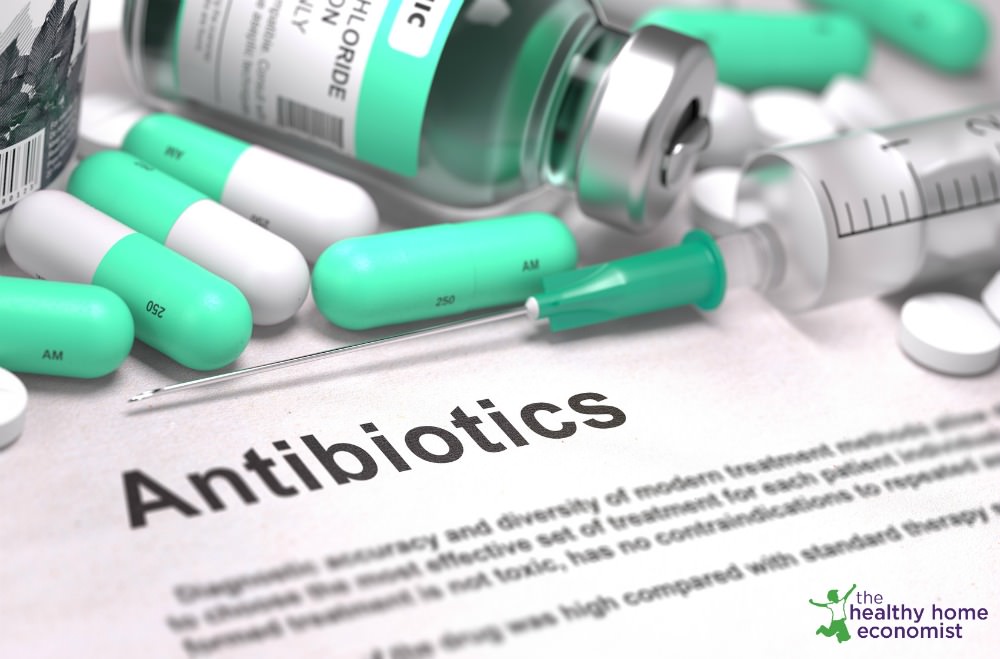
It has always seemed logical to me to avoid antibiotics and other meds like the Pill that decimate beneficial gut flora even though probiotics could conceivably “fix” the damage after the fact.
This expectation that repairing antibiotic damage with quality probiotics is straightforward, and that over time, gut flora returns to normal, may not be entirely correct.
Evidence is now emerging that damaged gut flora may actually be permanently altered by drugs. It is also one of the little-known risks of a screening colonoscopy.
This concerning and extremely provocative theory has been put forth by Dr. Martin Blaser MD of New York University’s Langone Medical Center who writes in the August 2011 edition of Nature:
Early evidence from my lab and others hints that, sometimes, our friendly flora never fully recover. These long-term changes to the beneficial bacteria within people’s bodies may even increase our susceptibility to infections and disease. Overuse of antibiotics could be fueling the dramatic increase in conditions such as obesity, type 1 diabetes, inflammatory bowel disease, allergies and asthma, which have more than doubled in many populations.
As evidence, Blaser goes on to say that infections with H. pylori, the bacterial cause of ulcers, has plummeted in recent years. H. pylori, as it turns out, is very susceptible to the same broad-spectrum antibiotics used to treat children’s ear infections and colds which are doled out like candy at most pediatrician offices.
Most children routinely receive up to 20 courses of antibiotics before the age of 18.
In addition, between one third and one half of pregnant women receive antibiotics during pregnancy. The high C-section rate is also a contributing factor as surgical birth negatively affects the composition of gut flora in children as they completely miss out on exposure to Mom’s friendly bacteria as they travel through the birth canal.
This is a lot of antibiotic exposure for our younger generations and the implications for those children who don’t acquire H. pylori due to excessive antibiotics appear to be dramatic with a higher risk for both allergies and asthma.
Blaser’s research group has also observed that lack of H. pylori in the human body affects the production of ghrelin and leptin, 2 hormones that play a factor in weight gain.
Preservation of the MicroBiome
The composition of a person’s microbiome, not only in the gut but also on the skin and everywhere in the body, has huge implications to long term health. Altering this balance with drugs not only negatively affects the variety of bacterial species present but also promotes the retention of resistant bacteria in the gut.
Preservation of your personal microbiome is critical and affects not only your health but the health of your children as parents bequeath their microbiome to their offspring.
Blaser observes that:
Each generation … could be beginning life with a smaller endowment of ancient microbes than the last.
If Dr. Blaser is correct, it seems that people need to guard their microbiome from the assault of drugs and processed foods in the same manner that they protect their home and possessions with locks on the doors.
Does this research mean that it is futile to use probiotics and lacto-fermented foods to attempt to repair antibiotic damage? Absolutely not. Even if it is proven that a damaged gut cannot be returned to “normal”, the situation very well could be improved and at worst case, positively managed by a steady and regular infusion of friendly microbes.
Reference
Antibiotic Overuse: Stop the Killing of Beneficial Bacteria, Nature, August 2011








Yup! http://t.co/nzgBdpGz
Antibiotic Damage to Gut Flora May Be Permanent – The Healthy Home Economist
http://ow.ly/6wnYC
This was interesting stuff. I’m actually taking a course of abx at the moment after slicing some nerves and tendons in my hand with a kitchen knife (by accident!!) and needing surgery. I know that my gut may well never be the same as it was before, but I also really don’t want an infection in my hand. I’m loading up on kefir and fermented salsa and a probiotic capsule to give my gut the best chance I can!
There’s a lot I could have done better to avoid my son having autism but I don’t feel guilt about it. Some regret that I didn’t know better but also hope that because there are causes, there are solutions 🙂
Wow, this article confirms what I’ve suspected all along. As a kid, was on antibiotics for several years for strep throat.at age 9, tonsillectomy finally. In my 40ties-after figuring out on my own, I am gluten intolerant.
oh, i know renee. i obviously wouldnt have ever chosen to NOT have the antibiotics. it was out of my control. it just doesnt help with the ingrained mama guilt to read stuff like that, so i avoid it and just do the best i can otherwise. 🙂
i definitely stuff my kids with home made yogurt, kefir and veggies.
Oh wow…I sure wish my mom knew to "just say no" to all those overprescribed childhood antibiotics I got dosed… http://t.co/36xsxozK
I think we need to remember the risk vs benefit. If you save your life using antibiotics then the benefit of that outweighs life long risks associated with AB use. But if you are about to cause life long damage to use ABs for a minor ear infection… perhaps the benefits don’t outweigh the risks. And you can only really assess those risks if you know what they are- knowledge is power 🙂
I should say that this research suggests that while the damage may not be able to be repaired all the way as it was before, there is no reason why it can’t be managed with diet. The researcher does not talk about this at all, but those of us who understand this do.